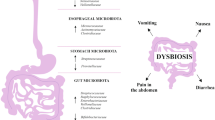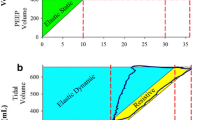Abstract
Using a canine chambered stomach preparation, the effects of three 30-min exposures of the gastric mucosa to 20% ethanol in 100 mN HCl on gastric mucosal barrier disruption and ulcer formation were assessed. The interval between exposures was 30 min. Following an initial exposure to 20% ethanol, the net fluxes of H+, Na+, and K+ ions and perfusate volume induced by a second and third exposure of the gastric epithelium to this damaging agent were significantly reduced. Only minimal ulceration was observed following the first exposure which did not worsen with subsequent exposure to ethanol. If indomethacin was given intravenously either before or immediately after the first ethanol exposure, recovery of barrier function was significantly lessened after this challenge, and the resistance to barrier disruption was significantly decreased during the two subsequent exposures to ethanol when compared to experiments in which mucosa was exposed to 20% ethanol without concomitant administration of indomethacin. In addition, marked mucosal ulceration was observed during the second and third ethanol exposures if indomethacin was given. these studies suggest that the first alcohol challenge may have elicited the synthesis and release of tissue prostaglandins and thereby enhanced resistance of the gastric mucosa to subsequent challenge by this damaging agent. When prostaglandin synthesis was blocked by indomethacin, the increased resistance to gastric injury did not occur.
Similar content being viewed by others
References
Deregnaucourt J, Code CF: Increased resistance of the gastric mucosal barrier to barrier breakers in the rat. Gastroenterology 77:309–312, 1979
Scheurer U, Schlegel JF, Kelly DG, Code CF: Bile exposure increases resistance of gastric mucosal barrier to rupture. Gastroenterology 72:1127, 1977 (abstract)
Vane JR: Inhibition of prostaglandin synthesis as a mechanism of action for aspirin-like drugs. Nature (London), New Biol 231:232–235, 1971
Moody FG, Durbin RP: Effects of glycine and other instillates on concentration of gastric acid. Am J Physiol 209:122–126, 1965
Davenport HW: Ethanol damage to canine oxyntic glandular mucosa. Proc Soc Exp Biol Med 126:657–662, 1967
Chaudhury TK, Robert A: Prevention by mild irritants of gastric necrosis produced in rats by sodium taurocholate. Dig Dis Sci 25:830–836, 1980
Robert A, Lancaster C, Hanchar AJ, Nezamis JE: Mild irritants prevent gastric necrosis through prostaglandin formation: Histological study. Gastroenterology 74:1086, 1978(abstract)
Lewi HJ, Carter DC: Intravenous prostaglandin synthetase inhibitors potentiate the effect of topical taurocholate on transmucosal ion flux.In Gastro-intestinal Mucosal Blood Flow. LP Fielding (ed). London, Churchill Livingstone, 1980, pp 192–201
Whittle BJR: Temporal relationship between cyclo-oxygenase inhibition as measured by prostacyclin biosynthesis and the gastrointestinal damage induced by indomethacin in the rat. Gastroenterology 80:94–98, 1981
Rainsford KD, Willis C: Relationship of gastric mucosal damage induced in pigs by anti-inflammatory drugs to their effects on prostaglandin production. Dig Dis Sci 27:624–635, 1982
Menguy R, Desbaillets L: Role of inhibition of gastric mucus secretion in the phenomenon of gastric mucosal injury by indomethacin. Am J Dig Dis 9:862–866, 1967
Garner A, Flemstrom G, Heylings, JR: Effects of antiinflammatory agents and prostaglandins on acid and bicarbonate secretions in the amphibian-isolated gastric mucosa. Gastroenterology 77:451–457, 1979
Kauffman GL, Aures D, Grossman MI: Intravenous indomethacin and aspirin reduce basal gastric mucosal blood flow in dogs. Am J Physiol 238:G131-G134, 1980
Miller TA: Commentary on drug-induced gastric mucosal injury. World J Surg 5:206–208, 1981
Robert A: Cytoprotection by prostaglandins. Gastroenterology 77:761–767, 1979
Bolton JP, Palmer D, Cohen MM: Stimulation of mucus and nonparietal cell secretion by the E2 prostaglandins. Am J Dig Dis 23:359–364, 1978
Garner A, Heylings JR: Stimulation of alkaline secretion in amphibian isolated gastric mucosa by 16,16 dimethyl PGE2 and PGF2α: A proposed explanation for some of the cytoprotective actions of prostaglandins. Gastroenterology 76:497–503, 1979
Kauffman GL, Reeve JJ, Grossman MI: Gastric bicarbonate secretion: Effect of topical and intravenous 16,16-dimethyl prostaglandin E2. Am J Physiol 239:G44-G48, 1980
Miller TA, Watkins LA, Henagan JM: 16,16 dimethyl PGE2 stimulates bicarbonate secretion in the canine stomach. Surg Forum 31:126–129, 1980
Cheung LY: Topical effects of 16,16-dimethyl prostaglandin E2 on gastric blood flow in dogs. Am J Physiol 238:G514-G519, 1980
Author information
Authors and Affiliations
Additional information
This work was supported by research grant AM 25838 from the National Institute of Arthritis, Metabolism and Digestive Diseases.
Rights and permissions
About this article
Cite this article
Miller, T.A., Henagan, J.M. Indomethacin decreases resistance of gastric barrier to disruption by alcohol. Digest Dis Sci 29, 141–149 (1984). https://doi.org/10.1007/BF01317055
Received:
Revised:
Accepted:
Issue Date:
DOI: https://doi.org/10.1007/BF01317055




